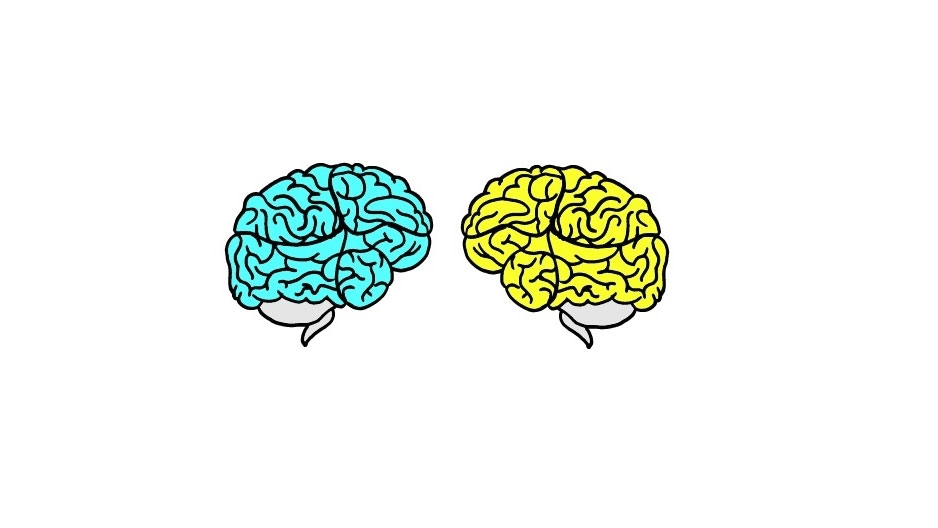Mental health 101: Signs of anxiety and depression and what to do
It’s OK to not be OK. But we want you to be as OK as possible, OK? Part of being OK (besides not saying OK so much) is making your mental health a priority. Nutshell talked to the pros at Tuttleman Counseling Services to find out about the signs of anxiety and depression; what you can do to help yourself or a friend; how to best take advantage of Tuttleman’s group counseling; and the importance of self care.

We’re sure this scenario sounds familiar: You said you were fine, and you thought you were totally fine. Then you’re really not fine and you don’t know what to do because you already told everyone you’re fine.
Licensed clinical psychologist and group coordinator at Tuttleman Counseling Services Courtney Henry said that just as it’s all right to need support, it’s important to get other people involved.
“More brains are better than one. If you let more people know what’s going on with you, then more people will be able to help you figure things out. You really don’t have to figure it out by yourself,” Henry said.
So first, know what the signs are for anxiety and depression. Being stressed out in college is a given, but look out for these behaviors to know if you or a friend might be dealing with something more serious.
Henry said that there are a lot of overlapping signs between anxiety and depression—here’s how we can differentiate. Typically, symptoms for anxiety are racing, uncontrollable and worried thoughts. There’s stuff that you just can’t get off your mind. Signs of depression include a sense of hopelessness and worthlessness.
There are several behavioral shifts that could be an indicator of both anxiety and depression: changes in sleep and/or appetite; increased irritability; muscle tension; general fatigue; and a lack of interest in things you would normally want to do.
“When these signs or symptoms have gotten to a level where you can’t function in your daily life anymore—whether that’s school, relationships, family, friends or typical activities you would do—that’s when you want to visit the counseling center,” Henry said.
Check out the sidebar to learn more about how to best take advantage of Tuttleman and their group counseling.
If you or a friend are experiencing any signs of anxiety or depression, but it isn’t impacting your daily life, Henry said one of the best things you can do is catch it before it gets more serious. Self care is a huge part of that.
Henry reminded us of the importance of sleeping and eating because when it’s finals time and everyone gets stressed out, sleep and food are the first things that go out the window. She also suggests building breaks into your schedule and rewarding yourself for your accomplishments, even if they’re small.
“Once you’ve turned in an assignment, take a 30 minute break or call a friend you haven’t talked to in a while,” Henry said. “When I was in college I would treat myself to a new iTunes song—it doesn’t have to be a big reward, just a little acknowledgement or celebration that you’ve moved through one more thing.”
She also gave some suggestions for the best way to support your peers. A simple thing to do is to just check in—say that you’ve noticed some of these signs and you’re wondering how you can help. Even a quick text asking how someone is doing and saying hi can go a long way in making someone feel supported.
For someone you think might be experiencing anxiety, try doing something relaxing with them. Henry suggests sitting down and looking up mindfulness and meditation apps with them and offering to practice with them. Her favorite apps are Calm and Headspace.
For someone you think might be experiencing depression, you could encourage them to get out. If they say they don’t want to, ask a second time. Henry said that one of the big interventions for depression is behavioral activation, which means doing things.
“Anxiety and depression tend to shrink your world down. You tend to do less and less. The concept there with behavioral activation is to broaden it back again, to make your world bigger,” Henry said.
If there is ever a concern about a friend having thoughts of death or killing oneself, Henry said that something you can do is just be aware of the referrals.
“If you think you have a friend in danger, we’re [Tuttleman] here, there are hotlines. Call someone, like Temple Police,” Henry said. “I know some students have a concern that if they call the police their friend will be mad at them. It’s a common concern, and at the same time we need to do things to ensure safety for each other.”
Related stories:
Drinking 101: What to do when your friend's had too much
9 Things to do on and off campus this winter